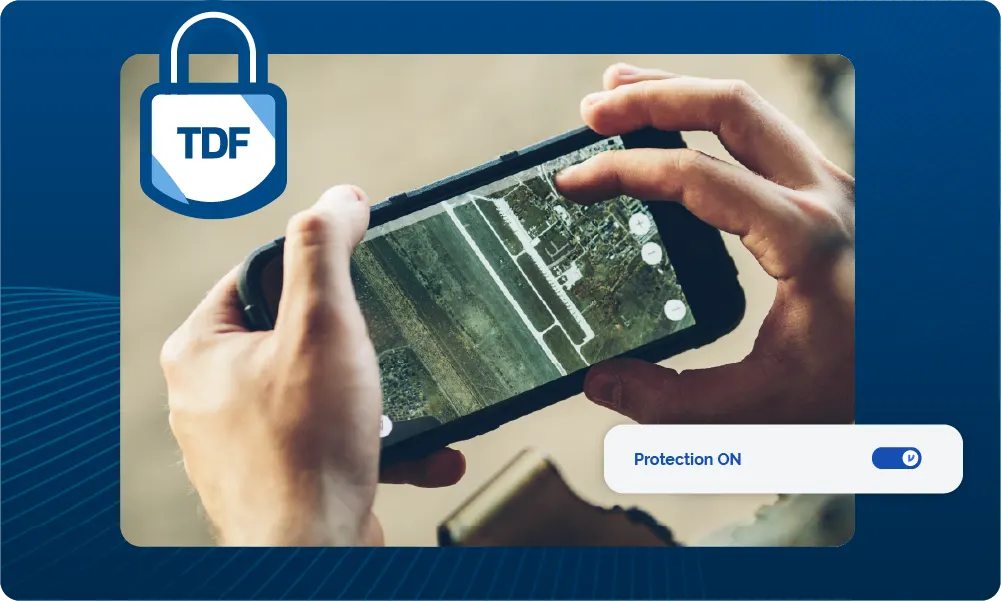TABLE OF CONTENTS
See Virtru In Action
Sign Up for the Virtru Newsletter


In today’s digital workplace, more organizations offer the option for remote work in an effort to cut overhead costs, reach talent in other geographical regions, and give employees a more flexible schedule. In fact, 74% of organizations believe that flexible working has become the “new normal”. Now, in light of the spread of coronavirus disease (COVID-19), some organizations are even requiring remote work.
Whether remote work is part of company culture or is only an option under extenuating circumstances, data security tools and resources are critical elements to any remote work policy. By making it easy for your team to collaborate securely, you can avoid interruptions to normal business operations and improve productivity.
First things first, establish remote work guidelines. This can help reduce the inherent risks of working remotely by establishing a set of procedures that your employees must follow in order to work from home. Additionally, employees will know exactly what is required of them in a remote work scenario. Don’t forget to adapt, if needed, your organization’s data security policies to accommodate remote work.
Other people have access to public Wi-Fi networks and, without a firewall between you and them, threat actors can easily gain access to your computer from across the room. So, if you’re working from a coffee shop, airport lounge, or any other public space, consider using a Wi-Fi hotspot. With most major carriers, you can pay a small fee to use your cell phone as a private Wi-Fi network.
If you use a personal computer or device to access your work network, you’re putting the company networks, and yourself, at risk. Efficient IT teams take great care to perform regular updates, run antivirus scans, and provide additional levels of security to your work computer, so avoid using your personal computer whenever possible.
This not only improves communication but helps remote team members easily connect with colleagues. When face-to-face time is limited, messaging tools are a great way to stay engaged with your team members in a way that feels less formal than email.
When it comes to sharing sensitive data—such as intellectual property (IP), passwords, company financials, or even customer data—ensure you have the appropriate levels of protection in place. Encrypting data sent via email or shared in Google Drive ensures that no unauthorized third party can gain access to your organization’s most sensitive data, plus it can make the difference in compliance with regulations such as HIPAA, FERPA, CCPA, and ITAR.
Having a remote work policy, with the tools to support it, is only effective if your team members are properly trained on how to follow the policy. To ensure business operations continue to run smoothly when teams are spread out geographically, ensure your employees care and are informed about cybersecurity. Every employee should understand his/her responsibility in protecting sensitive data.
The reality of remote work is that it can be very beneficial for employees, there are risks, and that business must continue as usual. The foundation of any remote work policy should be supported by security features that keep sensitive business data protected, no matter where it’s shared or accessed. Virtru’s flexible, easy to use and trusted privacy technologies govern access to sensitive data throughout its full lifecycle—from creation through sharing, storage, analysis, and action.
To learn how Virtru can provide the tools needed to empower remote team members to collaborate securely, get in touch with us today.

The editorial team consists of Virtru brand experts, content editors, and vetted field authorities. We ensure quality, accuracy, and integrity through robust editorial oversight, review, and optimization of content from trusted sources, including use of generative AI tools.
View more posts by Editorial Team










Contact us to learn more about our partnership opportunities.